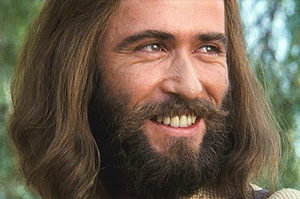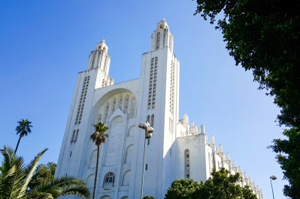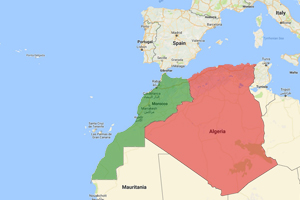
Jesus in the Quran
JESUS in the Quran JESUS IN THE KORAN AND INTER-RELIGIOUS DIALOGUE After much reflection, I have decided, for the first editorial of this blog, part
The first
« think tank »
unique in the world:
an interfaith Woodstock

In a world in “perpetual” distress, desolation, drift, blind violence, obscurantism, regression, withdrawal and perdition for almost a century, there are moments of light that transcend our morose daily lives by opening up windows to the sky! This is particularly true of Toumliline, which is unknown, obscured and almost absent from the Moroccan collective memory. It is now important to inventory, collect, study and list it in school textbooks, the media, and more particularly the press and audiovisual media, in order to measure its full significance, before making it known to the wider Moroccan public.
About twenty Benedictine monks from En-Calcat, under the direction of Father Denis Martin, settled in Toumliline on 7 October 1952. Nestled on the edge of a cedar forest in the bosom of the Atlas Mountains, near Azrou, not far from the imperial city of Fez, began the adventure of a monastery, in the heart of the land of Islam, which, over the years, has forged the image of a place where cultures, beliefs and languages have blended freely and intimately. It was a haven of peace and conviviality where Muslims and Christians lived in total communion for 16 years.
These Benedictines came as guests from Morocco with the support of a Muslim ruler, Sultan Mohammed V, the Crown Prince, the Moroccan government and religious and political personalities of different tendencies. As committed Catholic monks, they lived their spiritual life and their social inclusion in great harmony, in a landlocked and poor region, in order to live their convictions in solidarity, respect and friendship with the people who welcomed them, according to Françoise Martinet, author of a majestic essay that retraces the Toumliline Monastery in a meticulous and rigorous manner (Les Rencontres Internationales de Toumliline, Editions du Sirocco).
Taking note of this unique experience in the land of Islam, Marie-Rose Mayeux*(1) wrote:
« For the first time, a Muslim sovereign and his government are encouraging, even promoting meetings that, at the same time, are blessed and directed by authorised members of the Catholic Church (...). Will it be permitted to put forward the idea that such harmony seems only possible in Morocco, a country of strict Koranic observance but broad tolerance? »
Marie-Rose Mayeux Tweet
The Toumliline Monastery has become, over time, a space and workshops where reflections and proposals on contemporary issues of extreme importance to Morocco, the Muslim world, Africa, Europe, Asia and America have emerged.
The Monastery of Toumliline has become over time a space for dialogue, witness, exchange and confrontation of ideas between Muslims, Catholics, Protestants and Jews.
The Toumliline Monastery has become over time a crossroads where we spoke above all about man, his values, the response to the challenges of the times, without dogma or ideology, in complete freedom, a crossroads where theology (Muslim, Christian or Jewish) was harmoniously associated with philosophy, humanities, political science, sociology, anthropology, history and economics.
«The monastery of Toumliline became over time a crossroads where the Benedictines succeeded in creating a "spirit of Toumliline" which was synonymous with living together, respect, culture, dialogue, knowledge and recognition of the Other.»,
according to the director of the Archives of Morocco, Jamaâ Baida*(2) Tweet
First of all, we note the presence and interventions of Prince Moulay Hassan (future King Hassan II) and Princess Lalla Aïcha. On the political side, we mention the presence of Moroccan ministers Mehdi Ben Barka, Mohammed El Fassi, Abdellah Ibrahim, Driss M’Hammedi, Abderrahim Bouabid, Mahjoub Ahardan, …
On the theological, philosophical and academic side, we mention in particular the presence of the most illustrious personalities: the Moroccan theologian Sheikh Al Islam Mohamed Bel Larbi Alaoui*(3), the French Islamologists Louis Massignon*(4), the Iraqi Muhsin Mahdi*(5), the Lebanese priests Youakim Moubarak*(6) and Régis Blachère*(7), the Egyptian Osman Yahya*(8) Father Peyriguère and Monsignor Lefèvre, the philosophers Louis Gardet*(9), the philosopher Mrs. Schulter-Hernkes, representative of the Federal Republic of Germany on the Executive Board of UNESCO, Olivier Lacombe, Dean of the Faculty of Letters of Lille, R. P. Régis, Dean of the Faculty of Philosophy of the University of Montreal.
There were also representatives of the Protestant Church, the Coptic Church and the Maronite Church.
Eminent Jewish representatives also participated in the Toumliline meetings. We mention in particular Alexander Easterman, one of the leaders of the World Jewish Congress, and the great thinker and philosopher Emmanuel Lévinas*(10) , director of the École Normale Israelite Oriental in Paris, who did not fail to recall, during the 1956 session, that during the years 1939-1945, the Jews experienced “total dereliction. They knew a condition inferior to that of things, an experience of total passivity, an experience of the Passion. The Jews then, he said, “were only Jews” (…) It was at this time that the Sultan of Morocco spared Moroccan Jews from the throes of the antisemitic laws of Vichy: “In this very land, Jews threatened by the racial laws heard the voice of a Muslim prince who took them under his high protection“.
On the Moroccan civil society side, we mention in particular the nationalist and feminist Fatema Hassar, the actor Tayeb Seddiki, the sociologist Fatima El Mernissi, the writer Fouad Laroui or the poet Abdellatif Laâbi, the writer Mohammed Kheir-Eddine, the economist Mohamed Lahbabi, the philosopher Mohammed Aziz Lahbabi, the painters Jilali Gharbaoui and Ahmed Cherkaoui. The presence of these personalities perfectly illustrates the transversality and universality of this mythical and mistic place of Toumliline.
«All these personalities were the first builders and architects of a world of progress, freedom, democracy, solidarity, peace, cooperation, cordial understanding and convergence of differences beyond all cultures, identities and confessions »
testified Driss KHROUZ*(11), professor and former director of the National Library of Morocco Tweet
All the sessions discussed at the Toumliline Monastery had an undeniable originality, an awareness of the possibilities of understanding, dialogue and common action beyond our deep differences on the level of the faith of each one which it would be vain and perilous to deny and disown.
All the participants and the media, both Moroccan and international, were impressed by the quality of the reflections and by the desire for all to get to know each other, to understand each other, to exchange and to debate on various themes relating to Man, but also on the reality of the world of the time and the meeting of religions and cultures.
This “decade of exception” was like the course of a fast and sparkling meteor, the time of a very enlightened and illuminating flash. In 1968, this exceptional place closed its doors prematurely. The lights of the Toumliline Monastery were extinguished forever and the darkness spread, leaving only nostalgia and shadows behind this “exceptional decade”.
Jalal Boubker Bennani
Marie-Rose Mayeux, “Cours Internationaux d’été de Toumliline: 1956-1957-1958-1959”; in Archives de Sociologie des Religions, no. 9, p.83.
Jamaâ Baida, teacher-researcher at the Faculty of Letters and Human Sciences in Rabat, director of the Archives of Morocco, member of the International Advisory Council of the Memory of the World programme, “Once upon a time there was TOUMLILINE…”, (Editions la Croisée des Chemins). He is also the author of a good book “Présence chrétienne au Maroc, XIXème – XXème siècles”, (Editions & Impressions Bouregreg).

JESUS in the Quran JESUS IN THE KORAN AND INTER-RELIGIOUS DIALOGUE After much reflection, I have decided, for the first editorial of this blog, part

Christianity in Morocco A BRIEF HISTORICAL OVERVIEW OF CHRISTIANS IN MOROCCO We are going to fly over a few periods of the very ancient and

In the meantime, what could we hope for Algeria? Without doubt that Algeria knows the happiness of an alternation Moroccan style…. SO THAT OUR PEOPLES

The first « think tank » unique in the world: an interfaith Woodstock THE MONASTERY OF TOUMLILINE In a world in “perpetual” distress, desolation, drift,

REINVENTING TOUMLILINE “A people without memory is a people without a future” wrote Aimé César or “He who does not know where he comes from
Test
Papa,
À la lecture de ce blog, je suis impressionné par la qualité du fond et de la forme de ton travail. Je sais qu’il te tenait à cœur et qu’il est le fruit de plusieurs années de réflexions.
J’avais au départ le sentiment de te découvrir autrement, mais après réflexion, je me rends compte qu’en réalité ces publications reflètent parfaitement une partie de qui tu es. Je conçois mieux ce que j’avais du mal à comprendre jusqu’ici – quelques mots par-ci par-là, puis des phrases, des articles, plusieurs réflexions et enfin certains choix et certains actes.
J’ai pris bien du plaisir à lire ce premier billet, très stimulant intellectuellement (mais pas uniquement)! J’ai aimé le choix de certains mots qui ne tombent ni dans la vacuité ni dans la facilité de plusieurs acteurs du ‘vivre ensemble’ mais qui en réalité en sont les bourreaux. L’histoire de ces bénédictins m’inspire et fait écho en moi – ils ont vécu leurs convictions animés de courage à travers un engagement silencieux et efficace. Je me demande quelle est la profondeur de l’héritage légué par ce projet et quelle forme prendrait pareille initiative aujourd’hui.
Plusieurs autres idées me viennent, notamment sur le véritable diagnostique qu’il convient de poser – mais je crois qu’il y a là matière à en débattre oralement.
J’attends avec hâte ton prochain article dont je connais le thème.
Tendrement,
Mon cher Jalal,
Enfin le voilà !il voit le jour dans le brouhaha et le tumulte ambiants, dans notre société plurielle, mais ô combien singulière !
Ton blog se voulant une passerelle de compréhension , de fraternité ,de tolérance ,et de compréhension, ouvre une nouvelle fenêtre que dis -je? Une porte pour un dialogue, une interrogation des problématiques sociétales liées à notre époque, notre terreau culturel, et ce fameux savoir être.
J’ai apprécié la richesse de ton blog ,qui m’apporte une connaissance riche de notre passé pas si lointain, où nous nous sommes faits connaître par la tolérance , la fraternité qui unissaient notre tissu social.
Nous devrions nous appuyer sur ces exemples fort heureusement nombreux pour nous échapper des dogmes actuels, de ces pensées uniques et obsessionnelles du bien et du mal,et du nihilisme ambiant.
Revoir l’histoire la nôtre, en passant par celles des autres, peuvent nous permettre d’avancer dans ce monde en perpétuel mouvement sans jugement hâtif, sans peur du divin .
Être acteur de notre société ,un peu partout chacun aspire à un monde de liberté, et de savoir ,qui devraient être notre baton de pèlerin pour un monde meilleur ! où l’Homme retrouve sa dignité parmis ses frères. Et où la femme retrouve enfin sa liberté, toute sa liberté d’expressions.
Longue vie à ton blog mon cher ami.
“L’harmonie universelle réside dans l’unité des variétés”.
Leibniz.
J’ai reçu ce blog d’un ami et à vrai dire, j’étais relativement surpris vu la manière à laquelle le sujet a été abordé.
À travers la gravité et l’importance du thème développé dans le 1er billet de ce blog, je considère que l’exemple du Monastère Toumliline, “une décennie d’exception”, a été bel et bien une expérience mûre, réfléchie et responsable que le Maroc, dans des moments très difficiles (l’indépendance du Maroc) nous a laissé une empreinte profonde dans le cœur comme dans la mémoire pleine des vraies valeurs où priment le respect, la solidarité et l’enrichissement mutuel qui font la richesse et la source des vertus humaines.
Évidemment, les maux et les carences mentionnés dans ce blog viennent du déficit démocratique, le non respect des droits et libertés des citoyens, l’imbrication du référentiel religieux au détriment de la citoyenneté et j’en passe. Cependant, je retiens en priorité la réforme de l’éducation à la maison, à l’école, la mosquée ou les médias. Les programmes éducatifs et culturels doivent véhiculer les valeurs universelles de liberté, d’égalité de tous, d’ouverture, les impératifs de justice, l’importance de l’amour et de respect de l’autre.
Même si la tâche paraît impossible, ce blog soulève une question primordiale : le savoir vivre ensemble d’une manière harmonieuse en paix et en toute confiance est une lutte qui devrait être menée d’une manière collective où la société civile devra jouer le premier rôle contre toutes les dérives qui engrenent la société marocaine.
À très bientôt
Cher ami,
J’ai bien lu ton blog. Les lacunes et les défaillances très graves dans l’éducation, la santé, l’économie et j’en passe sont connues de tout le monde. Ce blog est destiné surtout à un savoir vivre ensemble entre tous les citoyens de culture, de confession, de couleur…. différents.
En ce qui me concerne, je considère la régression scientifique, l’effritement du champ politique, le recul des élites modernes et intellectuels marocaines sont des vraies causes qui empêchent sérieusement à un épanouissement des citoyens vers un monde meilleur.
Le savoir vivre ensemble est toujours englouti dans des questions de morale, d’interdits, de répétition des traditions, de halal et de haram….
Via ton blog, je viens de redécouvrir d’une manière approfondie le monastère de Toumliline. Quelle belle expérience, une vraie “décennie d’exception”. Une expérience inédite qu’il faut absolument réinventer dans les plus brefs délais. Nous en avons vraiment besoin car le Maroc mérite d’être un pays de dialogue et d’un savoir vivre où tous les citoyens vivront comme le cappuccino de notre cher politologue HassanAourid.
Cher ami, vraiment tu t’es lancé dans une aventure relativement risquée. Je te souhaite sincèrement plein succès. Nous sommes entièrement avec toi.
Derouiche
Mon cher Jalal
J ai été très agréablement surpris par la qualité du contenu. Très bien documenté et riche en information. C est un volet de ta personnalité que je découvre et qui me réjouit.
Que nous caches tu encore?
J’applaudis l’initiative de notre cher ami Bennani.
Heureux de m’adherer à cet échange,et sûrement faire connaissance de celles et ceux qui désirent le partage,et vivre ensemble, ce qui nous a échappé
Pour le reste de notre vie.
Santé,bonheur et aux aventures.
Mes amitiés.
Jamal.